Energy and digital will unlock bilateral potential
In Indonesia, stable economic growth continues, reaching an estimated 5 per cent in 2023. Foreign direct investment (FDI) recorded an annual increase, from $32 billion in 2021 and $33.4 billion in 2022 to $37 billion in 2023. Despite the decline of global trade, Indonesia was able to maintain a trade surplus for four years in a row, reaching $36.9 billion in 2023.
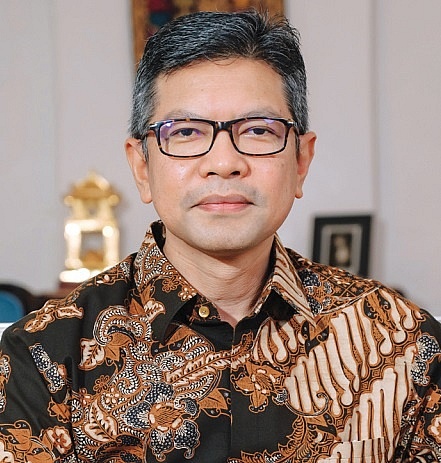 |
| Denny Abdi, ambassador of Indonesia to Vietnam |
Vietnam also continued the trend of remarkable economic growth, with a 5.05 per cent growth in 2023. The confidence of the international community in Vietnam remains strong due to its political stability and excellent business environment - as shown by FDI. By the end of 2023, total disbursement of FDI reached $23.28 billion.
Following 2022 trends, total bilateral trade continued to exceed the $10 billion target, reaching $13.8 billion in 2023. Also last year, the first direct flight between our capital cities since the pandemic was also launched, strengthening connectivity between our two countries.
In addition, in terms of Indonesia-Vietnam relations, 2023 marked an important milestone as we celebrated 10 years of our strategic partnership.
Given these achievements, the outlook in 2024 for bilateral relations between the two countries is promising. Especially when both countries welcomed 2024 with a state visit by President Joko Widodo at the invitation of State President of Vietnam Vo Van Thuong.
In his meetings with President Thuong, National Assembly Chairman Vuong Dinh Hue, and Prime Minister Pham Minh Chinh, President Widodo discussed the elevation of Indonesia-Vietnam’s strategic partnership to a higher level, setting a new target of reaching over $15 billion in 2028, and the vision to become high-income economies by 2045 while also reaching net-zero emission targets.
President Widodo’s state visit also produced agreements between the two governments, as well as between businesses. The two sides finalised an MoU on fisheries and another on ICT. A number of deals between businesses were also agreed in the areas of technology, renewable energy, and high-tech industries.
President Widodo also co-chaired a high-level business dialogue with PM Chinh and selected CEOs from Indonesia and Vietnam to discuss cooperation in developing a knowledge-based economy, and to showcase investment commitments, prospects, and challenges between the two countries. This is in line with our priorities for Indonesia-Vietnam cooperation: agriculture, fisheries, high-tech industries, renewable energy, and the digital economy.
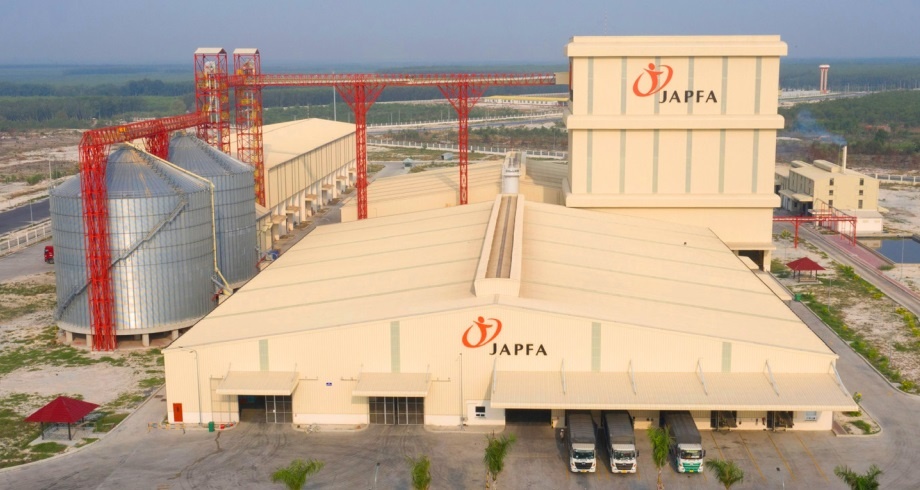 |
| The two nations are urged to focus on high-value products and facilities |
In the coming years, cooperation in these areas will be increasingly vital in our bid to strengthen bilateral trade and investment. As developing economies, Indonesia and Vietnam are in a very similar situation, experiencing rapid socioeconomic growth driven by youth, and a vast potential of human and natural resources.
To ensure these advantages translate into tangible benefits, it is fundamental to collaborate in developing and connecting our resources. This means promoting investment in education, research and innovation to capitalise our human resources, as well as promoting investment in developing regional supply chains.
To achieve this, Indonesia and Vietnam need to transform their economic cooperation, shifting from the conventional trade partnerships into collaborations focused on production of high-added value products. For instance, Indonesia and Vietnam have put much attention into the development of electric vehicles (EVs). Naturally, as developing and neighbouring countries, this can resort into a competition. This competition should instead be converted into a collaboration.
Vietnam, through VinFast, has established itself as a global electric vehicle manufacturer. Indonesia, on the other side of the table, has all the ingredients needed to become a global battery manufacturer. Through cooperation, Indonesia and Vietnam can work together to develop a regional supply chain for EVs, multiplying the output produced in comparison to when we compete. This strategy can be replicated in other priority sectors.
Yet, it has to be underlined that economic development must not grow at the expense of sustainability. Indonesia and Vietnam have set their net-zero emission goals according to the Paris Agreement. Our reliance on energy based on fossil fuels can be a bottleneck to our development if not addressed effectively.
The two countries are also partners of the Just Energy Transition Partnership, and the ability to mobilise these resources efficiently will be key to unlock further investments in renewable energy. Environmental, social, and governance considerations have also become a deciding factor for investors to fund projects.
All in all, in 2024, I believe the challenges we have faced may continue to be among us. Hence, our endeavours in energy transition, digital transformation, and industry down-streaming will be key in unlocking our potential. Both Indonesia and Vietnam have the resources and commitments to level up, what is left is making full use of these assets.
Much may need to be done, but seeing the foundations of our relations and the commitments shared between us, I strongly believe 2024 will be a positive year for Indonesia and Vietnam.
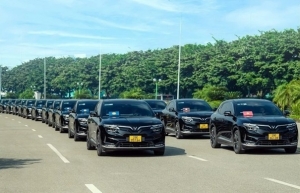 | Vietnam, Indonesia eye cooperation in EV development, food security, manpower Indonesian Industry Minister Agus Gumiwang Kartasasmita has invited Vietnam to cooperate in the development of several sectors, including the electric vehicle (EV) industry, green industry, food security, research and development, and human resources. |
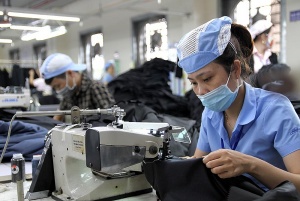 | Indonesia seeks trade deal with EU to compete with Vietnam Indonesia is urgently pursuing a trade agreement with the European Union, according to newswire JakartaPost. This initiative, according to Indonesian Economic Affairs Coordinating Minister Airlangga Hartarto, is largely motivated by the desire to level the playing field with Vietnam, which currently benefits from the EU-Vietnam Free Trade Agreement (EVFTA). |
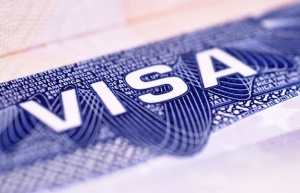 | Indonesia targets 1,000 investors via ‘golden visa’ programme The Indonesian government has set a target of attracting at least 1,000 investors through the “golden visa” programme, part of an effort to attract high-quality talent and capital flows into this Southeast Asian country. |
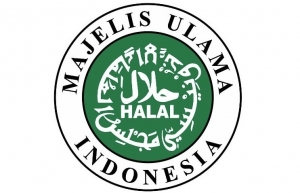 | Vietnam determined to tap into thriving Halal market Vietnam is sharpening its strategic approach to the Halal market, actively pursuing stronger partnerships with Indonesia and ASEAN nations to capitalise on the expanding industry. |
What the stars mean:
★ Poor ★ ★ Promising ★★★ Good ★★★★ Very good ★★★★★ Exceptional
Related Contents
Latest News
More News
- Hermes joins Long Thanh cargo terminal development (February 04, 2026 | 15:59)
- SCG enhances production and distribution in Vietnam (February 04, 2026 | 08:00)
- UNIVACCO strengthens Asia expansion with Vietnam facility (February 03, 2026 | 08:00)
- Cai Mep Ha Port project wins approval with $1.95bn investment (February 02, 2026 | 16:17)
- Repositioning Vietnam in Asia’s manufacturing race (February 02, 2026 | 16:00)
- Manufacturing growth remains solid in early 2026 (February 02, 2026 | 15:28)
- Navigating venture capital trends across the continent (February 02, 2026 | 14:00)
- Motivations to achieve high growth (February 02, 2026 | 11:00)
- Capacity and regulations among British areas of expertise in IFCs (February 02, 2026 | 09:09)
- Transition underway in German investment across Vietnam (February 02, 2026 | 08:00)

 Tag:
Tag:


















 Mobile Version
Mobile Version